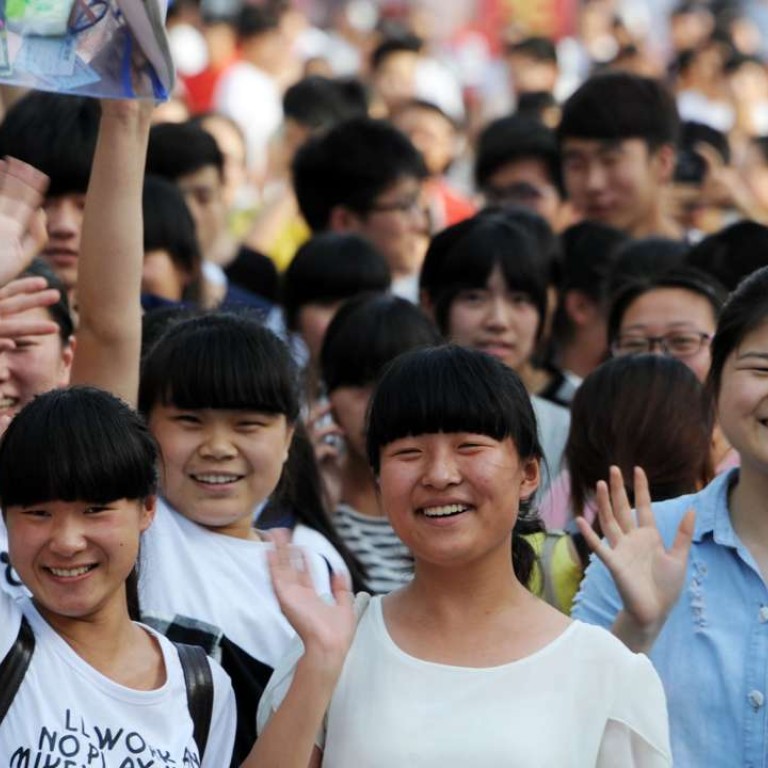
Shanghai private schools warned to focus more on official subjects, including ideology
The move, reiterating importance of China’s traditional curriculum, comes as parents increasingly choose Western education for their children
The Shanghai government has tightened controls over what private schools must teach to local pupils from the primary to junior high level, warning they have to offer some domestic curriculum including political ideology.
The move comes as many parents increasingly choose a Western education for their children.
Last week, the city’s education commission met the heads of more than 20 private schools that cater to children aged six to 15.
Schools are banned from teaching international subjects that do not include the “basic curriculum” developed by the central authorities, according to minutes of the meeting circulated on the internet and confirmed by local education staff.
The law already requires schools to teach classes that include moral and political education, but many private schools have cancelled them as they shift towards international curriculums to lure more Chinese parents who have a global outlook.
The head of the international department at a leading private school in Shanghai who attended the meeting said the authority’s renewed emphasis prompted concern among parents who felt it was their right to decide how their children were educated.“Most private schools offering international curriculums combine both the official plan with the international programmes as required. But some have simply given up the former in recent years,” she said, requesting anonymity.
“For compulsory education, we can’t use Western textbooks to teach young children. It’s like brainwashing and we’re only making them into Chinese people with Western hearts,” she said.
The rules do not apply to international schools where expats send their children. Lacking a foreign passport, mainland pupils are not eligible to attend these schools, but they can enrol in private schools offering international curriculums or public schools with such programmes. Shanghai has 50 such institutions.
Authorities also told the private schools they could not accept foreign funding, the department head said.
The commission listed the rules in a statement on its official Weibo account in response to heated public discussion surrounding the meeting, saying it was merely trying to standardise the governance of private schools in accordance with existing policies.
Xiong Bingqi, deputy head of the 21st Century Education Research Institute, said private schools routinely violated policies on curriculum as they tried to meet the expectations of parents, who believed the different approach helped their children perform better than their counterparts in the public system.
“These schools are doing quite well – their pupils are either able to apply for overseas schools or adapt well to domestic exams,” Xiong said. “It’s just that some schools might have quit teaching moral or ideology subjects.”
Mother Yang Yi said her teenage daughter at the Shanghai United International School was taught how to handle social issues from a psychological perspective rather that official views on morality and rule of law.

“However, I recently heard that some pupils are required to recite moral slogans, just as we did during our time at school,” she said. “I guess the schools are aware of the rules and are now preparing for inspections [by the education authority].”
Chu Zhaohui, a researcher at the National Institute of Education Sciences, said some lawmakers had voiced concerns over the expanded role of Western thought in mainland education. “Some said there’s too much Western-style education, and some said we’ve abandoned traditional values,” Chu said.
He said that while many schools started international programmes in order to meet the increasing demand for oversea study in the past years, educational watchdogs generally turned a blind eye and enforced regulation only loosely.
There were nearly 600 international schools across the mainland as of last year, which fall into three categories – those set up specially for foreigners, private schools offering international curriculums, and public schools with such programmes.

Excluding the first type, there are about 480 schools open to mainland students, according to a report on the development of international schools in China released last year by educational think tank Newschool Insight Media.
Shanghai has the most number of all three such schools – 88 in total and 50 of the second and third types, followed by Beijing and Guangdong, it said.
According to official statistics from the Ministry of Education, about 7 per cent of primary school pupils and more than 11 per cent of junior middle school pupils studied at private schools last year. In 2005, the proportions were 3.5 per cent and 6 per cent respectively.
The two programmes widely introduced by mainland private schools are the Primary Years Programme (PYP) and International Primary Curriculum (IPC), two popular curriculums for three to 12 year olds across the world.

